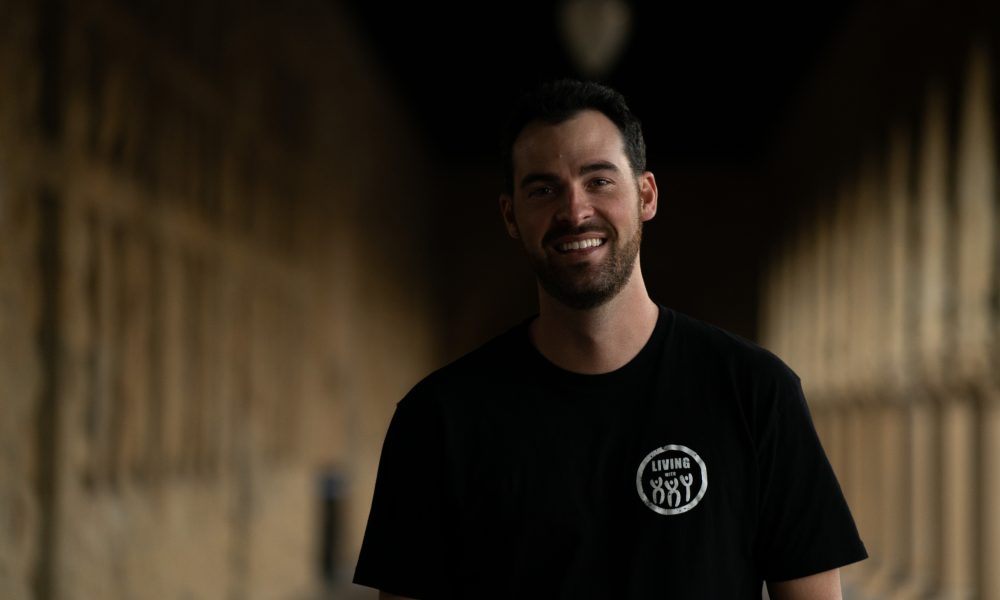Original article from SDvoyager found Here
Today we’d like to introduce you to Ryan Bregante.
Hi Ryan, thanks for sharing your story with us. To start, maybe you can tell our readers some of your backstories.
In 1985, while my mother was pregnant with me, I was diagnosed with 47, XXY, or Klinefelter syndrome. While one of the most common genetic conditions, with approximately 1 in 600 males born with it, there was little information available. My parents read every study and research paper they could find, but we’re determined to raise me the same as any other boy. My mother quit her job as one of the top lawyers in our area and stayed home to focus on my development. She made sure I had everything necessary to succeed.
When I was 9, I was told about my condition. However, I didn’t think much of it at the time. I wasn’t raised to think or feel as though there was anything wrong or different about me. I learned I was infertile and would need testosterone replacement therapy. I started giving myself weekly testosterone shots at 13 and continued about my life. I graduated University of San Diego High school in 2004, attended The Culinary Institute of America in Hyde Park, NY, became a chef for over ten years, and worked as an action sports photographer. I dated, had friendships, and eventually settled in my hometown of San Diego.
When I was 32, I Googled Klinefelter syndrome for the first time and was shocked by what I found. The information available was the same my mother found three decades ago. It was outdated, much of it was wildly inaccurate, and the images of people with Klinefelter syndrome were disturbing. I realized there was almost nothing in the way of support for men with the condition or families newly diagnosed or with young children. I started creating videos about my life with XXY and posting them on YouTube in 2017. However, there was still more work that needed to be done. Seeing a community in desperate need of support, I started my nonprofit, Living With XXY, in 2019. Our focus is on sharing accurate, up-to-date information and education and raising awareness about the many positives of living with Klinefelter syndrome.
I’m sure you wouldn’t say it’s been obstacle-free, but so far would you say the journey has been a fairly smooth road?
Like many kids, I faced a lot of challenges growing up. I dealt with bullies, who tormented me over my taller-than-average height, the gap between my front teeth, and my social awkwardness. Schoolwork also proved challenging at times, with assignments that my peers completed quickly often taking longer for me. However, my parents instilled in me a desire to overcome whatever obstacles were placed in my way, and with perseverance, I overcame a lot.
We’ve been impressed with Living With XXY, but for folks who might not be as familiar, what can you share with them about what you do and what sets you apart from others?
Living With XXY is a Nonprofit Organization 501(c) (3) I founded in 2019. I’m the President, and we employ several contractors and have a small team of volunteers. Our focus is to raise awareness about the many positive traits and attributes men and boys with Klinefelter syndrome have. We interview people living with the condition and parents who have received pre- or post-natal diagnoses and share their stories through written blogs and a podcast. We work with some of the top researchers in the country to help raise awareness and share accurate information. Those who come to our website or find us on social media receive help, whether to share resources or help connect with the others in the community. We are also working on updating the medical community, as there is an extremely high rate of termination in prenatally diagnosed Klinefelter syndrome pregnancies.
What does success mean to you?
For me, success comes from changing the way people view Klinefelter syndrome. This can be whether they have it or someone they love has been diagnosed with it. We want people to understand that this is a very liveable condition, and more than that, people can thrive with it. We are also beginning to see healthcare providers utilizing our website as a resource for patients, which is enormous. Rather than being scared of a horrible diagnosis, they are supported and cared for while learning. There is still a long way to go and a lot of work, but we are on our way.
Contact Info:
- Email: [email protected]
- Website: https://livingwithxxy.org/
- Instagram: https://www.instagram.com/livingwithxxy
- Facebook: https://www.facebook.com/livingwithxxy
- Youtube: https://www.youtube.com/livingwithxxy
- Other: https://open.spotify.com/show/5qt0lshr9wCWLuCHgywuYP




Leave A Comment